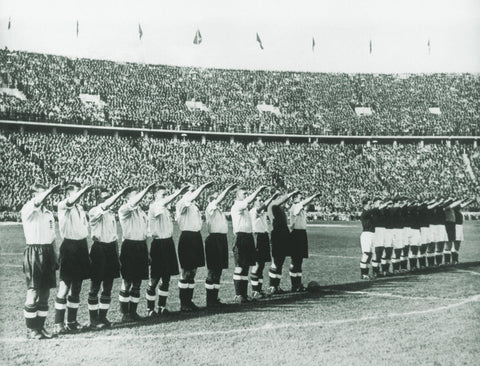
Book Review: ‘Coffee With Hitler’ by Charles Spicer
As the result of multiple restrictions imposed by the Treaty of Versailles after World War I, Germany’s economy suffered during the 1920s and ’30s, creating resentment among German citizens and fertile ground for the rise of Nazism. Well aware of the vast toll another war would wreak upon society, three perceptive Englishmen—Ernest Tennant, Philip Conwell-Evans and Grahame Christie—sought to avert another world war through the formation of the exclusive Anglo-German Fellowship (AGF) and its German sister organization, the Deutsch-Englische Gesellschaft (DEG). AGF’s intent was to develop civilized friendships and political and economic connections with German leaders, including Nazi Party members such as Hermann Göring, Joachim von Ribbentrop, Rudolf Hess and even Adolf Hitler.
In Coffee With Hitler Spicer depicts the efforts of Tennant, Conwell-Evans and Christie to form an effective alliance with key German leaders, despite ever-increasing evidence of Nazi treachery and a British government firmly entrenched in an appeasement mindset. Spicer also describes how AGF connections quietly gathered valuable intelligence from Germany’s resistance leaders before World War II, carefully noting the AGF was not a pro-Nazi group, but rather a well-meaning, pro-Germany organization. In addition, Spicer reveals the eventual deterioration of the Anglo-German relationship and how Nazi leaders’ ambitions and obsession with Lebensraum (“living space”) led to the inevitable outbreak of war.
Coffee With Hitler is an insightful and detailed examination of a well- intentioned attempt to avert war. It also clearly demonstrates the hazards of failing to quickly heed intelligence reports to make political decisions and employing inexperienced political favorites to carry out foreign policy initiatives.
Coffee With Hitler
The Story of the Amateur Spies Who Tried to Civilze the Nazis
By Charles Spicer, Pegasus Books, 2022
If you buy something through our site, we might earn a commission.
This review appeared in the Winter 2023 issue of Military History magazine.
